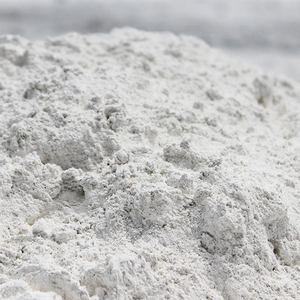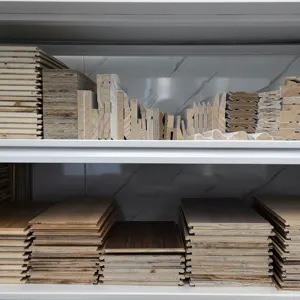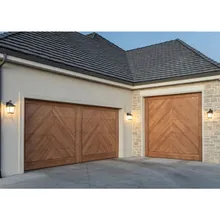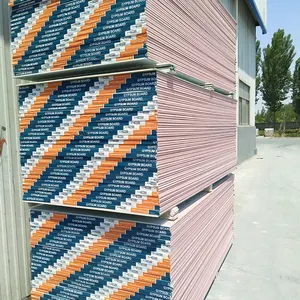What is gypsum Board Products Guide
Gypsum Board Products Guide is an essential resource for anyone involved in the construction or interior finishing industry, particularly those working on projects that require the installation of gypsum board products. Commonly known as drywall or plasterboard, these products are made from gypsum, a soft sulfate mineral, and are used for constructing interior walls and ceilings. The primary purpose of gypsum board is to provide a smooth, flat surface that can be easily decorated or painted, making it an ideal choice for both residential and commercial buildings.
The installation of gypsum board involves attaching the boards to a metal or wooden framework using screws or nails. Once they are secured, the seams between the boards are filled with joint compound and covered with a finishing layer of paper or another material. Gypsum board products come in various sizes and thicknesses, providing versatility in their applications. They can also be manufactured with specific characteristics such as fire resistance or soundproofing properties to meet the requirements of different building projects.
Gypsum board products cater to a wide range of professionals including architects, builders, contractors, and interior designers who rely on them for their ease of installation, durability, and quality finish. These products are also sought after by DIY enthusiasts for home improvement projects. Understanding the different types and features of gypsum board is crucial for determining which product is best suited for a particular application.
Types of Gypsum Board Products Guide
Gypsum board products come in several types to meet the diverse needs of construction projects:
-
Standard Gypsum Board: This is the most common type of gypsum board used for general applications in the construction industry. It's suitable for ceilings, partitions, and other standard uses. The board comes in various thicknesses to accommodate different needs.
-
Moisture-Resistant Gypsum Board: As the name suggests, this type of board is designed to resist moisture, making it ideal for areas with high humidity such as bathrooms and kitchens. It often has additional features like mold and mildew resistance.
-
Fireproof Gypsum Board: This type is formulated with additives that make it more fire-resistant than standard gypsum board. It's used in areas requiring additional safety measures against fire hazards.
-
Soundproof Gypsum Board: Soundproof gypsum board has special properties that dampen sound, providing acoustic insulation. It's used in places where noise reduction is a priority.
-
Aluminum-Foil Gypsum Board: This type incorporates a layer of aluminum foil for enhanced heat insulation properties. It's often used in applications where additional heat retention is needed.
-
PVC Gypsum Board: PVC gypsum board features a layer of PVC on its surface which provides additional protection against moisture and makes it easy to clean, making it suitable for areas that require frequent washing or are exposed to high levels of humidity.
How to choose gypsum Board Products Guide
Selecting the right type of gypsum board product requires careful consideration of the intended application and the specific features offered by each type. For businesses looking to purchase gypsum boards for commercial use or resale, several factors should be taken into account:
-
Material Purity: Depending on the project needs, options range from standard to high purity gypsum, with higher purity boards like Type X offering superior fire resistance which may be crucial for the application.
-
Thickness and Density: The thickness will affect the board's strength and sound insulation properties while density impacts its weight and robustness. Thicker and denser boards are generally more durable but also heavier.
-
Moisture Resistance: For areas with high moisture levels such as bathrooms or kitchens, moisture-resistant (green) gypsum boards are essential to prevent water damage.
-
Flexibility vs Rigidity: Depending on the design requirements, businesses must choose between flexible boards for curved surfaces or rigid ones for straight lines.
-
Soundproofing: Sound-absorbing gypsum boards can be vital for projects where noise reduction is important, such as in schools or hospitals.
-
Sustainability: With an increasing focus on environmental impact, choosing eco-friendly products such as recyclable paper-backed boards or non-toxic moisture-resistant options might be beneficial.
About gypsum Board Products Guide on Alibaba.com
Alibaba.com stands out as an exceptional source for businesses worldwide seeking reliable gypsum board products. With an extensive array that caters to diverse commercial needs—from robust fire-resistant boards suitable for hospital construction to elegant designs perfect for hotel interiors—Alibaba.com provides access to numerous options without compromising on quality or functionality.
The platform's intuitive features allow buyers to filter through a vast selection efficiently. Whether you prioritize project solution capabilities such as graphic design support or after-sale services like onsite installation training, Alibaba.com offers detailed information on each product without overwhelming you with technical jargon. This ensures that you find products tailored to your specific requirements while enjoying a streamlined procurement process.
Moreover, Alibaba.com's commitment to facilitating secure transactions through services like Trade Assurance gives businesses peace of mind when purchasing bulk quantities. With suppliers offering materials ranging from natural gypsum to high purity options and even customizable designs that reflect unique branding opportunities, Alibaba.com empowers businesses to create distinctive spaces with high-quality gypsum board products sourced from around the globe.
Common FAQs for gypsum Board Products Guide
What are the primary applications of gypsum board products in construction?
Gypsum board products are primarily used in interior wall and ceiling applications for sound insulation, fire resistance, and as a substrate for various decorative finishes such as paint or wallpaper.
How does the fire resistance of gypsum board products vary?
The fire resistance of gypsum board products is achieved through the inclusion of glass fibers or other non-combustible materials that can enhance the overall fire safety of a building.
What should be considered when choosing a gypsum board product for a high-humidity environment?
When selecting gypsum board for high-humidity environments, it is important to choose products that offer moisture resistance such as certain types of treated coreboards or moisture-resistant gypsum boards.
Is it possible to use gypsum board products for soundproofing purposes?
Yes, certain types of gypsum board products are specifically designed for soundproofing and can be used in various applications including residential, commercial, and industrial settings.
Can gypsum board products be used as a base for exterior cladding systems?
Gypsum board products are primarily designed for interior use; however, there are certain types that are suitable for exterior applications due to their moisture resistance treatment.
Do gypsum board products contain asbestos?
Asbestos was commonly used as a fireproofing material in older structures; however, modern gypsum board products do not contain asbestos.
What is the environmental impact of using gypsum board products in construction?
Gypsum board products can contribute to sustainable construction practices as they are made from naturally occurring or recycled materials and can be recycled at the end of their life cycle.
How do I choose between different types of core materials for my gypsum board product?
The choice of core material should be based on the specific requirements of your project such as fire resistance, sound absorption needs, or environmental considerations.
What is the difference between Type C and Type X gypsum boards?
Type C gypsum boards contain a higher percentage of glass fiber and can be used in areas where greater structural support is needed. Type X gypsum boards have glass fiber reinforced facing for enhanced fire resistance.










































 浙公网安备 33010002000092号
浙公网安备 33010002000092号 浙B2-20120091-4
浙B2-20120091-4